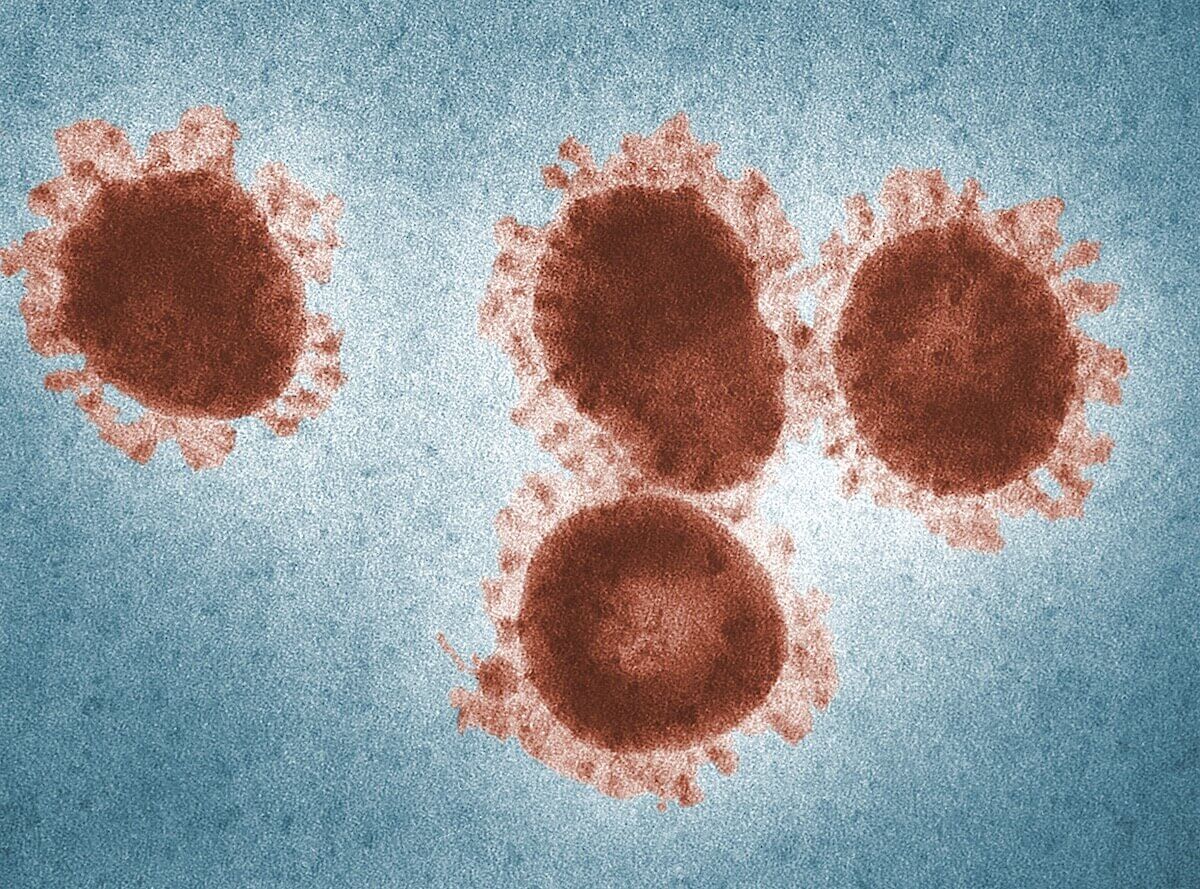Genes for covid-19 resilience: identification of DNA markers corresponding to coronavirus resistance and susceptibility

Coronaviruses (CoVs) (order Nidovirales, family Coronaviridae,
subfamily
Coronavirinae) are responsible for respiratory disease outbreaks in many
vertebrate species.
They are a large family of single-stranded RNA enveloped viruses (+ssRNA) that can
be isolated in
different animal species. They have genome sizes ranging between 26 to 32 kilobases
(kb) in length,
being the largest genomes for RNA viruses (consequently increasing the effectiveness
of facemasks).
COVID-19 also known as severe acute respiratory syndrome coronavirus 2 (SARS-CoV-2),
or "novel
coronavirus 2019" is a new virus
and we are just beginning to understand resistance and susceptibility in humans.
COVID-19 is similar to severe acute respiratory syndrome (SARS) in the respect
that both viruses
infect their human hosts via the same receptor, the angiotensin-converting enzyme 2
(ACE2 receptor),
and cause similar clinical and pathological features.
Interestingly the spike protein which is responsible for receptor binding is highly
similar between
2019-nCoV and SARS-CoV, this is a result of significant selection for the same
receptor (Wu.,
2020). Research into how
our bodies defend against SARS might reveal how our bodies could defend against
covid-19.
Several recent Genome Wide Association Studies (GWAS) have provided a much deeper
insight into
the genetic variations that can help to explain why some individuals are virtually
unaffected by
COVID-19, and for others the virus is life threatening or even fatal.
In this post, we provide a review of the peer reviewed literature and present information about candidate genes for SARS-CoV resistance. If you have taken an at home DNA test like those available from 23andMe, Ancestry DNA, Dante labs, you can evaluate your raw DNA data and see how your DNA sequence compares with the research findings.
How to analyze your DNA for coronavirus resistance or susceptibility?
Step 1) Download your raw autosomal DNA file and save it to a safe and secure location
To analyze your DNA data, start by downloading your raw autosomal DNA and save it to a safe location. Here are instructions to download your raw DNA file from: 23andMe, Ancestry DNA, Family Tree DNA, Dante Labs, My Heritage, Genes For Good, Vitagene, and Living DNA.
Step 2) Analyze your raw DNA file
Search your raw DNA data using a text editor such as "text wrangler" or "notepad" using the "find" function, or using command line.
Open your raw DNA file and you will notice the headers of unique SNP ID (rs# or i#), chromosome, position and genotype. The formats differ slightly between each direct to consumer DNA testing company.
To evaluate your risk of poor recovery from the COVID-19 have a look for these DNA markers described below:
Several Genome Wide Association Study (GWAS) were recently published that describe loci associated with respiratory failure in patients infected with SARS-CoV-2 and three studies identified SNP markers in the same ~50 kb genomic segment that is inherited from Neandertals (Ellinghaus D et al., 2020, Zeberg & Pääbo, and Blokland et al., 2020). In addition these GWAS studies also identified a number of other DNA markers that are associated with COVID-19, and each of these are presented in the tabel below.
In addition, other DNA markers covered in this post include rs4804803 which was associated with SARS, and those positioned in the angiotensin-converting enzyme-2 (ACE2) receptor which was proved to be the same receptor for the human respiratory coronavirus NL63, , SARS-coronavirus (SARS-CoV), and the novel coronavirus 2019-nCoV/SARS-CoV (Li et al., 2017; Lu et al., 2019). Since the spike protein of the coronavirus has evolved to match the ACE2 receptor, it's likely that individuals with variations that alter the protein sequence would result in a degree of resistance to covid-19. Below are non-synonymous SNPs from the ACE2 transcript NM_021804.2 and of particular interest are SNPs that cause major changes like rs199951323 which results in a premature stop codon.
| Gene | dbsnp | Chromosome (GRCh37) | POS | REF | ALT | Risk Alleles | Marker Effect | Reference |
|---|---|---|---|---|---|---|---|---|
| IVNS1ABP | rs6668622 | 1 | 185414582 | T | C | Susceptibile Variant T:T and T:C in males | odds ratio 1.44 | Roberts., 2020; |
| SRRM1 | rs111972040 | 1 | 24999361 | A | G | risk genotypes G:G and A:G, 3_prime_UTR_variant | odds ratio for hospitalization = 8.29 | |
| LZTFL1 | rs35044562 | 3 | 45909024 | A | G | risk genotypes G:G and A:G, intron_variant,genic_upstream_transcript_variant | odds ratio 1.60 | Blokland et al., 2020; Zeberg & Pääbo |
| LZTFL1 | rs11385942 | 3 | 45876460 | A | - or A or AAA | InDel, A:A and A:- have higher respiratory failure susceptibility, intron_variant | odds ratio 1.77 | Ellinghaus et al., 2020; Roberts., 2020 |
| LZTFL1 | rs10490770 *LD with rs11385942 | 3 | 45864732 | T | C | risk genotypes T:C and C:C, intron_variant | odds ratio for heterozygous carriers 1.7 | Zeberg and Pääbo., 2020; |
| LZTFL1 | rs67959919 *LD with rs11385942 | 3 | 45871908 | G | A | risk genotypes G:A and A:A, intron_variant | odds ratio for heterozygous carriers 1.7 | |
| LZTFL1 | rs35624553 *LD with rs11385942 | 3 | 45867440 | A | G | risk genotypes G:A and G:G, intron_variant | odds ratio for heterozygous carriers 1.7 | |
| LZTFL1 | rs71325088 *LD with rs11385942 | 3 | 45862952 | T | C | risk genotypes C:T and C:C, intron_variant | odds ratio for heterozygous carriers 1.7 | |
| ABO | rs657152 | 9 | 136139265 | A | C or T | A risk allele, intron_variant | odds ratio 1.77 | Ellinghaus et al., 2020; Roberts., 2020 |
| Intergenic | rs5798227 | 12 | 53120100 | C | - | Risk allele is the deletion | p = 2.2x10-7 | Blokland et al., 2020; |
| IGHV3-7 | rs11844522 | 14 | 106522576 | C | T | Susceptibile variations T:T, C:T | p=1.9x10-7 | |
| Immunoglobulin Lambda Locus (IGL) | rs73166864 | 22 | 23340580 | T | C or G | Susceptibile variations T:T and T:C | odds ratio 1.7 | Roberts., 2020; |
| TLR7 | rs200553089 | ChrX | 12906010 | G | T | risk genotypes T:G and T:T, missense_variant | Made et al., 2020; | |
| Synonymous SNPs positioned in ACE2 | ||||||||
| ACE2 | rs373153165 | chrX | 15580093 | C | T or A | missense_variant | p.Asp785Asn/c.2353G>A | Cao et al., 2020 |
| ACE2 | rs140016715 | chrX | 15582154 | G | A | missense_variant | p.Arg768Trp/c.2302C>T | |
| ACE2 | rs147311723 | chrX | 15582265 | G | A | missense_variant | p.Leu731Phe/c.2191C>T | |
| ACE2 | rs41303171 | chrX | 15582298 | T | C | missense_variant | p.Asn720Asp/c.2158A>G | |
| ACE2 | rs370187012 | chrX | 15582327 | C | T | missense_variant | p.Arg710His/c.2129G>A | |
| ACE2 | rs776995986 | chrX | 15582334 | G | A | missense_variant | p.Arg708Trp/c.2122C>T | |
| ACE2 | rs149039346 | chrX | 15584416 | A | G | missense_variant | p.Ser692Pro/c.2074T>C | |
| ACE2 | rs200180615 | chrX | 15584488 | C | T | missense_variant | p.Glu668Lys/c.2002G>A | |
| ACE2 | * |
chrX | 15585879 | A | C | stop_gained | p.Leu656*/c.1967T>G | |
| ACE2 | rs183135788 | chrX | 15585933 | T | C | missense_variant | p.Asn638Ser/c.1913A>G | |
| ACE2 | rs748163894 | chrX | 15588434 | G | A | missense_variant | ||
| ACE2 | rs202137736 | chrX | 15591485 | T | C | splice_region_variant+intron_variant | c.1541+5A>G | |
| ACE2 | rs140473595 | chrX | 15591530 | C | T | missense_variant | p.Ala501Thr/c.1501G>A | |
| ACE2 | rs191860450 | chrX | 15593829 | T | C | missense_variant | p.Ile468Val/c.1402A>G | |
| ACE2 | rs758142853 | chrX | 15609868 | A | G | missense_variant | p.Val184Ala/c.551T>C | |
| ACE2 | rs754511501 | chrX | 15609902 | C | T | missense_variant | p.Gly173Ser/c.517G>A | |
| ACE2 | rs746034076 | chrX | 15609943 | T | C | missense_variant | p.Asn159Ser/c.476A>G | |
| ACE2 | rs373252182 | chrX | 15609973 | T | C | missense_variant | p.Asn149Ser/c.446A>G | |
| ACE2 | rs2285666 | chrX | 15610348 | C | T | splice_region_variant+intron_variant | c.439+4G>A | |
| ACE2 | rs768736934 | chrX | 15612963 | C | T | splice_region_variant+intron_variant | c.345+5G>A | |
| ACE2 | rs4646116 | chrX | 15618958 | T | C | missense_variant | p.Lys26Arg/c.77A>G | |
| ACE2 | rs73635825 | chrX | 15618980 | A | G | missense_variant | p.Ser19Pro/c.55T>C | |
| SNPs associated with SARS | ||||||||
| CD209 | rs4804803 | 19 | 7812733 | A | G | Susceptibile genotype A:A, upstream_transcript_variant | NC_000019.10:7747846 | Sakuntabhai et al., 2005; Chan et al., 2010 |
